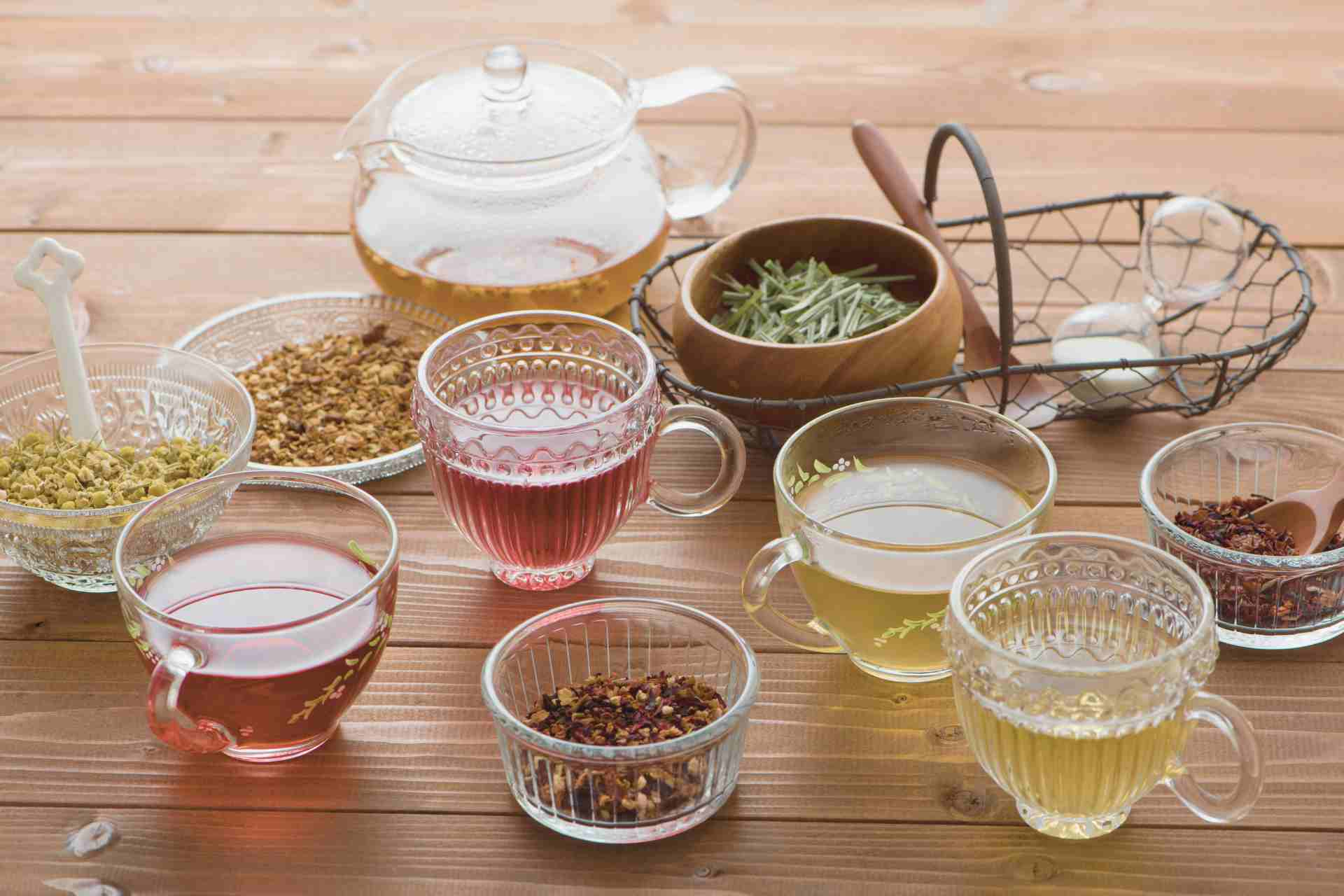Highlights:
- Herbal teas like ginger, chamomile, and licorice root help soothe sore throats by reducing inflammation and irritation.
- Honey, lemon, and cinnamon are powerful natural add-ins that enhance tea’s healing effects.
- Warm tea helps hydrate the throat, ease pain, and thin mucus.
- Drink 3–4 cups of herbal tea daily for best results; choose caffeine-free options if drinking in the evening.
- Some herbal teas may not be safe for everyone — pregnant women, young children, and individuals on medications should consult a doctor before use.
What Causes a Sore Throat?
Ever wake up with that scratchy, raw feeling in your throat and wonder… where did this even come from?
Sore throats are super common, and they can sneak up on you for all kinds of reasons. Let’s break down the biggest culprits:
Viral Infections (Like Colds and the Flu)
This is hands-down the most common cause.
When you catch a cold or the flu, your body’s immune system jumps into action, causing inflammation in your throat. That swelling and irritation? Yep, that’s what makes it hurt when you swallow or talk.
Viruses love to irritate everything they touch, and your throat is a prime target.
Bacterial Infections (Like Strep Throat)
Now, if your sore throat feels really intense — think raw pain, high fever, and maybe even white patches at the back of your mouth — it could be a bacterial infection like strep throat.
This one’s a little more serious and usually needs antibiotics to clear it up. (If you’re suspecting strep, definitely call your doctor.)
Allergies or Post-Nasal Drip
Spring blooms are beautiful… until they make you feel miserable.
If you struggle with allergies, you might experience post-nasal drip, where mucus slides down the back of your throat and causes irritation. Even though it’s not an infection, it can feel just as scratchy and uncomfortable.
Dry Air or Mouth Breathing
Raise your hand if you’ve ever woken up with a desert-dry throat after sleeping with your mouth open!
Dry indoor air, especially in the winter, can zap all the moisture from your throat lining, leaving it dry, irritated, and sore. Mouth breathing (from congestion or habit) makes it even worse.
Acid Reflux
Here’s a sneaky one: acid reflux.
When stomach acid flows back up into your esophagus (what doctors call GERD), it can irritate your throat over time.
You might not even feel heartburn — just a weird, persistent throat soreness that doesn’t seem to go away.
Quick Recap: A sore throat can come from viruses, bacteria, allergies, dry air, mouth breathing, or even stomach acid. Figuring out the cause is key to feeling better faster!
How Tea Can Relieve Sore Throat Symptoms
Okay, so you’re dealing with a sore throat — and you’re probably wondering, “Can a simple cup of tea really help?”
Short answer? Yes, it absolutely can. And here’s why:
Moisturizes and Soothes Throat Tissues
When your throat feels raw and scratchy, the last thing it needs is more dryness.
Sipping warm tea helps to keep your throat moist, which can instantly take the edge off that rough, painful feeling.
Think of it like giving your throat a soft, cozy blanket.
Helps Thin Mucus
If you’re coughing or constantly clearing your throat, you might be dealing with sticky mucus hanging around.
Good news: Warm fluids — especially tea — help thin out mucus, making it easier to clear your airways and breathe better.
Certain Herbs Are Nature’s Secret Weapons
The type of tea you choose matters, too. Some herbs aren’t just soothing… they’re powerful healers.
- Reduce inflammation: Ingredients like ginger, chamomile, and licorice root naturally calm swelling and irritation in the throat.
- Fight bacteria and viruses: Herbal teas often have natural antibacterial and antiviral properties that gently support your body while it fights off infections.
- Relieve pain naturally: Herbs like peppermint (with its cooling menthol) and slippery elm (with its protective mucilage) can actually help numb soreness.
- Support immune function: Teas packed with antioxidants — hello, green tea — help strengthen your immune system so you can bounce back faster.
Little life tip: Start sipping tea early when you first notice that “uh-oh” throat feeling. The earlier you soothe it, the quicker you will recover!
Top 7 Best Teas for Sore Throat Relief
Here are seven tried-and-true teas that naturally ease soreness, calm inflammation, and support healing — no harsh meds required.
1. Ginger Tea
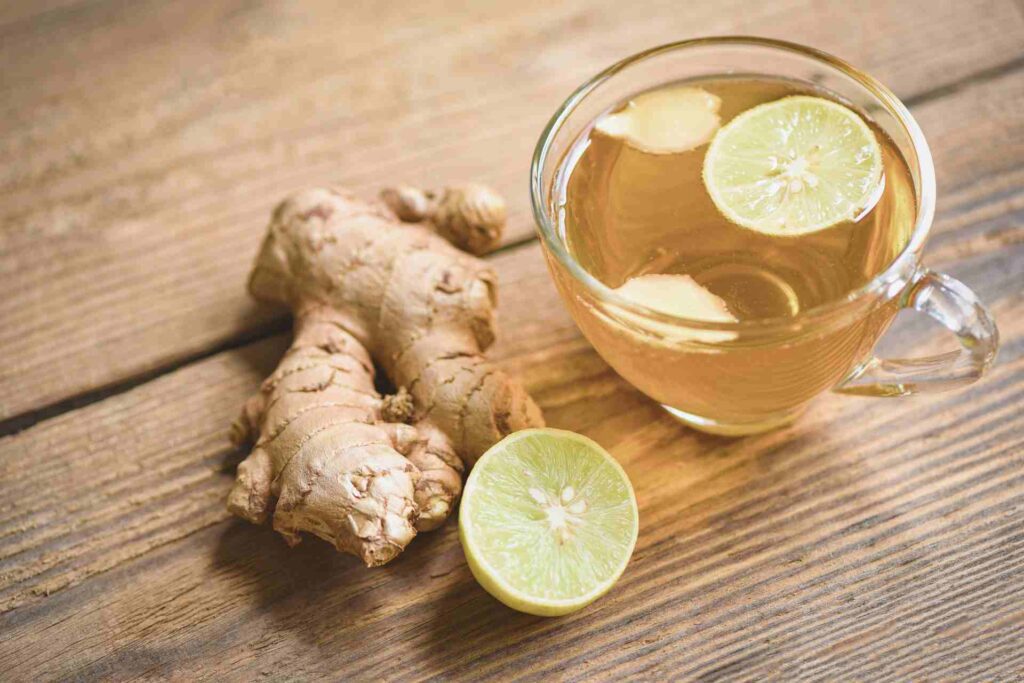
Why it works: Ginger is a superstar when it comes to relieving sore throats. It’s anti-inflammatory (great for swelling), antimicrobial (helps fight off bacteria and viruses), and even boosts circulation and immune response — basically, everything your body needs to bounce back.
How to make it:
- Slice about 1 inch of fresh ginger root (no need to peel, but you can!)
- Boil it in 2 cups of water for about 10 minutes
- Strain and sip, or add a spoonful of honey and a squeeze of lemon for even more throat-soothing power
Tip: Want a little kick? Add a dash of cinnamon or a few whole cloves for extra warmth and immune support.
2. Chamomile Tea
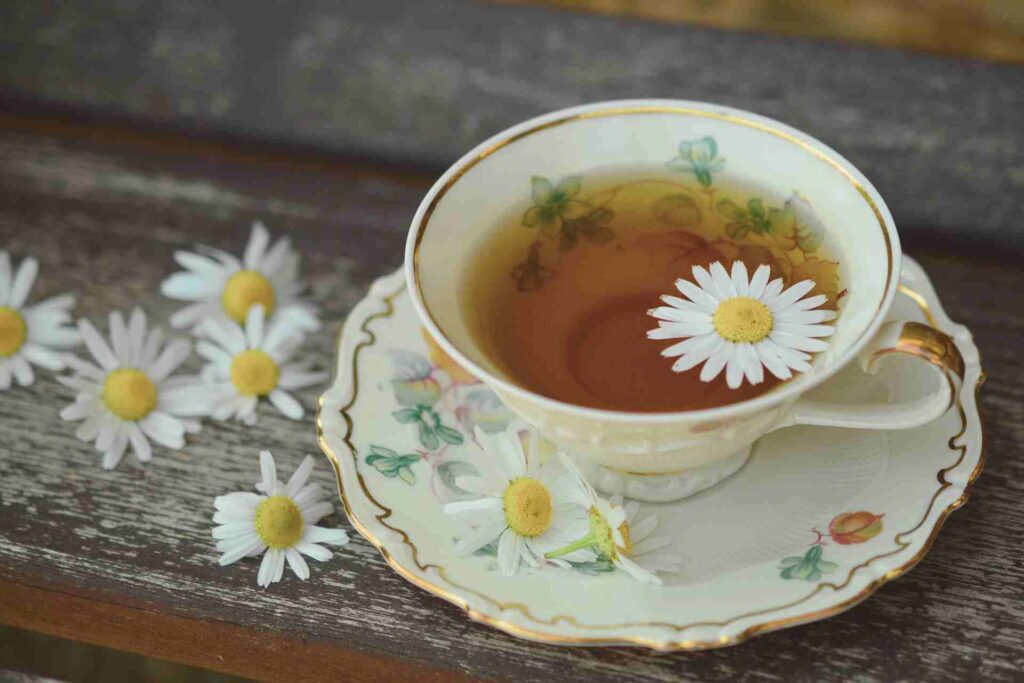
Why it works: Chamomile is like a warm hug for your throat and your nerves. It’s a natural anti-inflammatory, so it helps reduce swelling and irritation, plus it has mild sedative properties that promote relaxation — perfect if your sore throat is keeping you up at night.
Before you sip, inhale the steam for a few slow breaths. The gentle vapor can help open nasal passages and soothe irritated tissues.
How to make it:
- Steep 1 chamomile tea bag or 1 tablespoon of dried chamomile flowers in hot water for 5–7 minutes
- Add honey if you like it sweet — it also boosts the soothing effect!
Tip: Try sipping it right before bed to help you sleep better while your body heals.
3. Licorice Root Tea
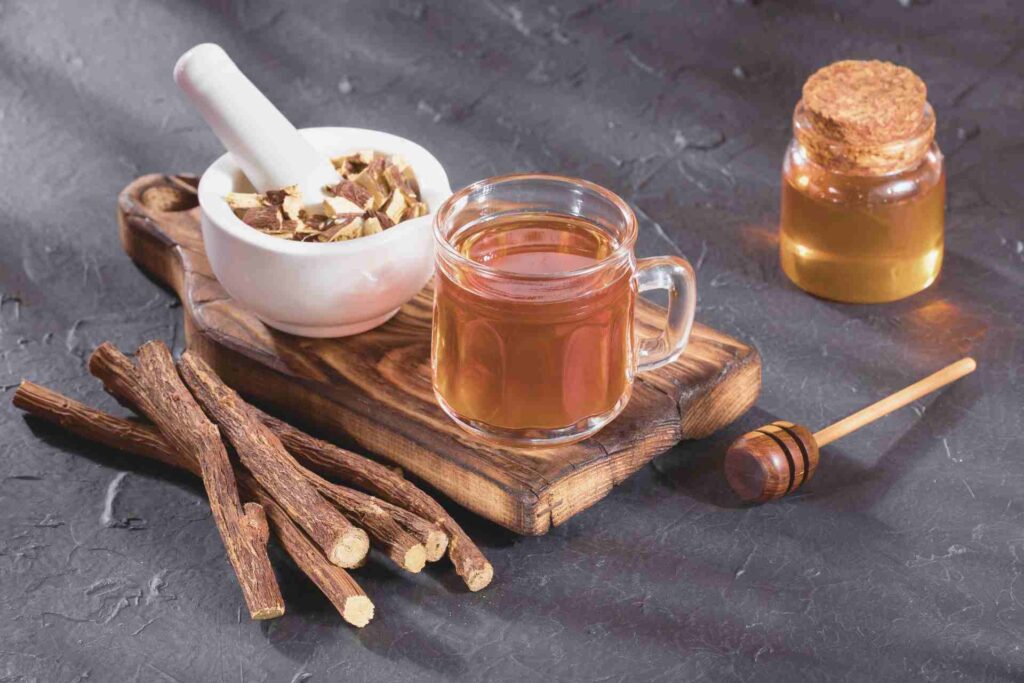
Why it works: Licorice root is one of nature’s best throat-coaters. It forms a protective film over irritated tissues, while offering antiviral and antimicrobial properties to help fight off infection. It’s especially great if your throat feels raw or you’re losing your voice.
How to make it:
- Use 1 teaspoon of dried licorice root or 1 licorice tea bag per cup of hot water
- Steep for 5–10 minutes, then strain if using the root
Caution: Licorice root isn’t for everyone. Avoid it if you’re pregnant, breastfeeding, or have high blood pressure, unless your doctor gives the green light.
Tip: Combine with slippery elm or marshmallow root tea for a powerhouse throat-coating blend.
4. Slippery Elm Tea
Why it works: Slippery elm is famous for its mucilage — a soothing, gel-like substance that coats the throat and forms a protective barrier over irritated tissues. It’s a go-to for that raw, scratchy feeling that just won’t quit.
How to make it:
- Use 1 teaspoon of powdered slippery elm bark per cup of hot water
- Stir until it thickens slightly, then sip slowly
Note: Slippery elm may interfere with the absorption of some medications, so take it at least 1–2 hours apart from any prescriptions or supplements.
Tip: The texture is a little different than regular tea — more like a thin, soothing broth. Think of it as a healing sip, not a sipping tea.
5. Marshmallow Root Tea
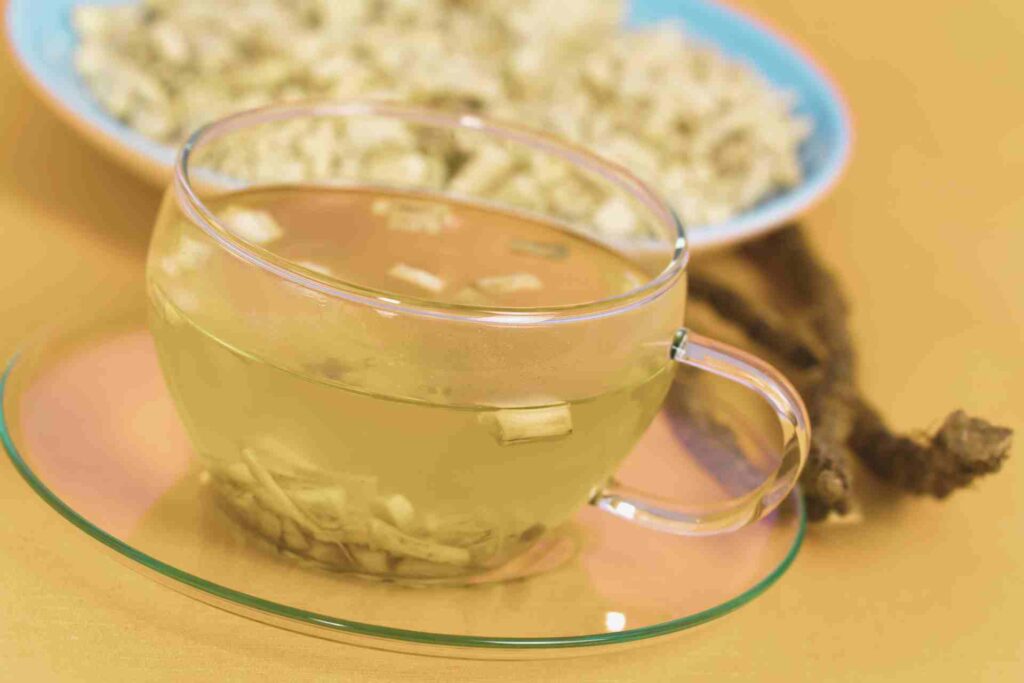
Why it works: No, not the fluffy kind! Marshmallow root is a plant rich in mucilage, just like slippery elm, which helps coat the throat lining and reduce that dry, burning pain. It’s especially helpful for persistent soreness and irritation from dry air or coughing.
How to make it:
- Steep 1 tablespoon of dried marshmallow root in cold water for at least 4 hours, then strain and gently warm before drinking
(Cold infusion preserves the mucilage best!)
OR
- Use a marshmallow root tea bag in hot water for a quicker, but still effective, version
Tip: Sweeten with honey for extra soothing and flavor!
6. Green Tea
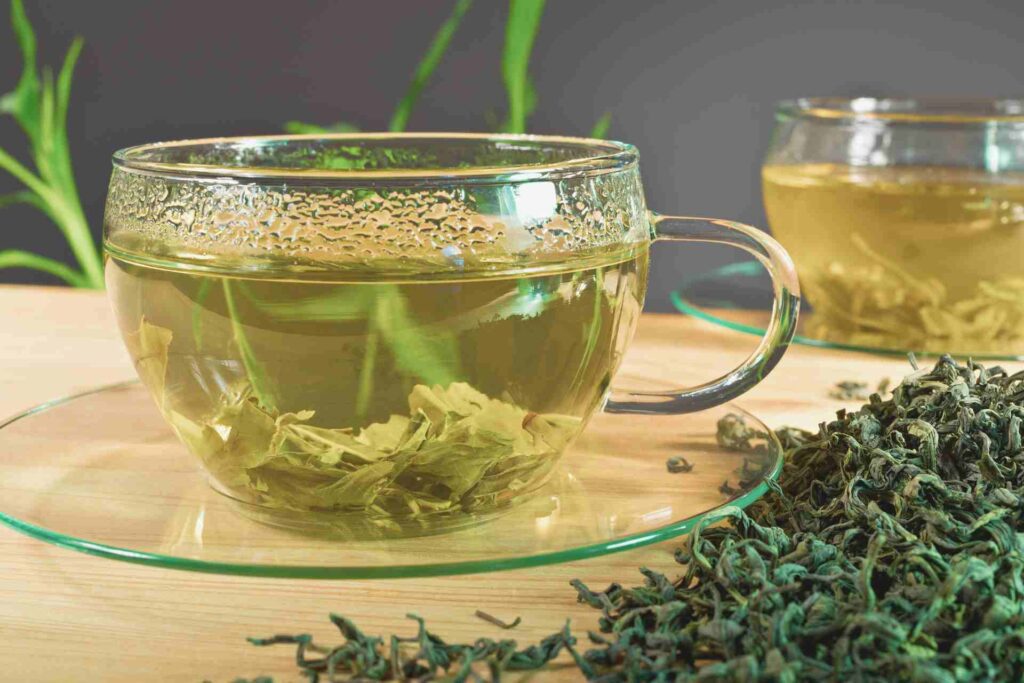
Why it works: Green tea is a powerhouse when it comes to immune support. It’s packed with antioxidants, helps reduce inflammation, and offers natural antimicrobial benefits, making it a smart pick when your throat is sore and you want to speed up recovery.
How to make it:
- Steep 1 green tea bag or 1 teaspoon of loose-leaf green tea in hot (not boiling) water for 2–3 minutes
- Avoid over-steeping — too long and it can taste bitter!
Tip: Try gargling with warm green tea before drinking it. It can help reduce throat bacteria and ease inflammation even more effectively.
Bonus: The gentle caffeine boost can be a nice perk if your cold has you feeling extra sluggish.
7. Peppermint Tea
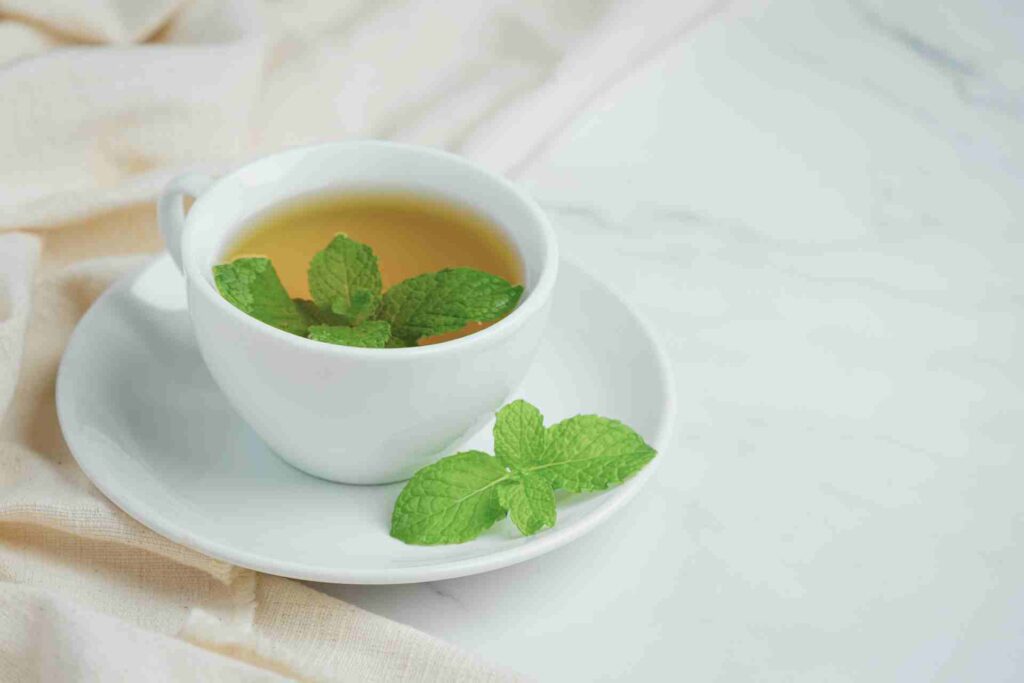
Why it works: Peppermint is more than just a refreshing flavor — it’s a natural remedy with menthol, which delivers a gentle cooling and numbing effect. This makes it amazing for easing throat pain and calming congestion, especially if your sore throat comes with sinus pressure or a stuffy nose.
How to make it:
- Steep 1 peppermint tea bag or 1 tablespoon of dried peppermint leaves in hot water for 5–7 minutes
- Inhale the minty steam as it steeps — it’s like a mini spa moment for your sinuses
Tip: Combine with chamomile or licorice root for a soothing, sweet-mint blend that covers all your bases.
Add-Ons for Extra Soothing Power
Honey
Why it helps: Honey is a time-tested remedy for sore throats. It’s a natural antibacterial that forms a gentle coating over irritated tissues and adds a delicious touch of sweetness to any tea. It can even help suppress coughing — especially at night.
Tip: Add 1–2 teaspoons to your tea once it’s warm (not boiling) to preserve its healing properties.
Lemon
Why it helps: Fresh lemon juice is loaded with vitamin C, which gives your immune system a little extra love. It also helps cut through mucus, making it easier to breathe and swallow.
Tip: Squeeze half a lemon into your tea and stir well — just don’t overdo it if your throat is raw, as the acidity might sting a little.
Cinnamon
Why it helps: This warming spice is more than cozy — it’s antioxidant-rich and gently antimicrobial. Cinnamon pairs well with teas like ginger, licorice root, and even chamomile, adding depth and warmth to your blend.
Tip: Add a cinnamon stick while steeping, or sprinkle a dash of ground cinnamon before serving.
DIY Sore Throat Tea Recipes
Sometimes, the best healing comes from your own kitchen. These easy, feel-good recipes use ingredients you probably already have — and they’re as comforting as they are effective.
Recipe 1: Ginger Honey Lemon Tea
This one’s a classic — warm, spicy, soothing, and just what your throat ordered.
What you’ll need:
- About 1 inch of fresh ginger, sliced
- 1 tablespoon of honey
- Juice from half a lemon
How to make it:
Pop the ginger into 2 cups of hot water and let it steep for 10 minutes. Then stir in the honey and lemon, and sip slowly. It’s soothing, hydrating, and gives your immune system a gentle nudge in the right direction.
Bonus tip: Make a double batch and sip throughout the day — your throat will thank you.
Recipe 2: Chamomile Mint Blend
This blend is perfect when you need to unwind and soothe that sore throat at the same time. Think of it as a warm hug in a mug.
What you’ll need:
- 1 chamomile tea bag
- 1 peppermint tea bag
How to make it:
Steep both tea bags together in hot water for about 5–7 minutes. That’s it! The chamomile calms and coats your throat, while the peppermint cools and clears.
Optional add-ins: A drizzle of honey or a cinnamon stick takes it to the next level — more flavor and even more comfort.
Perfect before bed to relax your body and ease throat irritation.
When to See a Doctor
Tea can work wonders, but sometimes your sore throat needs a little more than home remedies. If any of these symptoms pop up, it’s a good idea to check in with your doctor:
- Your sore throat lasts more than a week with no sign of improvement
- You have a high fever or swollen lymph nodes in your neck
- Swallowing or breathing feels difficult or painful
- You notice white patches or streaks of pus in your throat — this could be a sign of strep throat, which needs antibiotics.
Bottom line: If something feels “off” or you’re not getting better, trust your gut and get medical advice. It’s always better to be safe and get the right treatment if needed.
Best Practices for Sore Throat Relief
Sipping tea is a great start, but a few extra habits can really speed up healing and keep you more comfortable while your body fights off whatever’s going on.
Sip warm tea slowly throughout the day — Don’t just chug and go. Let it coat your throat and work its magic.
Stay hydrated — Water, herbal teas, and broths help keep your throat moist and your immune system strong.
Avoid irritants — Smoke, alcohol, and too much caffeine can dry out or irritate your throat even more. Best to steer clear while you’re healing.
Combine with other remedies — Try saltwater gargles, run a humidifier (especially at night), and rest your voice when you can.
Key Takeaways
- Herbal teas like ginger, chamomile, and licorice root are powerful natural remedies for sore throat relief.
- Warm fluids soothe tissues, reduce inflammation, and boost healing.
- Add honey, lemon, or cinnamon for even greater benefits.
- Know when to see a doctor if symptoms persist or worsen.
- Stay proactive about your health — and don’t forget to follow @joycethedentist for more natural wellness and oral health tips!
Frequently Asked Questions (FAQs) About Tea for Sore Throat
1. What tea is most effective for sore throat pain?
Some of the best choices are ginger, chamomile, and licorice root. They soothe inflammation, ease pain, and help your body heal naturally.
2. Can I drink tea if I have strep throat?
Yes — just know that tea can relieve symptoms, but it won’t replace antibiotics if your doctor prescribes them. Always follow medical advice.
3. Is it okay to add honey to my tea for a sore throat?
Absolutely! Honey not only sweetens your tea, but also coats your throat and helps reduce coughing and irritation.
4. How many cups of tea should I drink per day?
Aim for around 3 to 4 warm cups spread out during the day to stay hydrated and keep your throat comforted.
5. Should I use tea bags or fresh herbs?
Both are great, but fresh or loose-leaf teas tend to be more potent. Use what you have on hand — it’s all about consistency and comfort.
6. Are there any teas I should avoid when sick?
Try to limit caffeine (especially at night), and be cautious with licorice root if you’re pregnant, nursing, or have high blood pressure.
7. Can children drink herbal tea for a sore throat?
Yes, but stick to milder options like chamomile, and always check with your pediatrician before giving herbal remedies to young kids.




